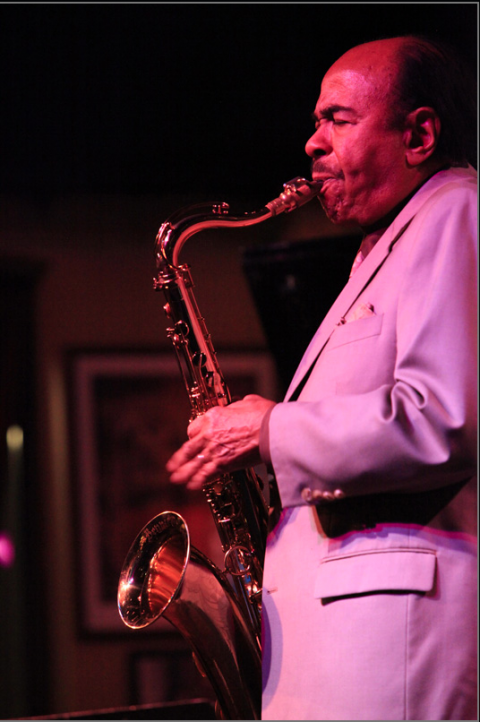Jazz Legend Benny Golson Visits with Global Jazz Institute Students

Benny Golson visits the Berklee Global Jazz institute to give students a taste of history.
Image courtesy of the artist
Jazz legend, composer, arranger, lyricist, producer and tenor saxophonist Benny Golson ‘99H recently visited the Berklee Global Jazz Institute (BGJI), shedding light on the history of jazz in an interview conducted by Danilo Pérez B.M. '88, the Grammy-winning founding artistic director of the Berklee Global Jazz Institute, and Bill Pierce B.M. '75, the chair of Berklee's Woodwinds Department who is, like Golson, a former member of Art Blakey's Jazz Messengers.
Golson is the only living composer to have written eight jazz standards: “Whisper Not” (which is also the title of his autobiography), “Are You Real?,” “Killer Joe,” “Five Spot After Dark,” “Along Came Betty,” “Blues March, “I Remember Clifford,” and “Stablemates.” He has played alongside jazz greats such as Blakey ‘87H, Benny Goodman, Dizzy Gillespie ‘89H, Lionel Hampton, and Earl Bostic, and written more than 300 compositions for artists such as Count Basie ‘74H, John Coltrane, Miles Davis, Ella Fitzgerald, and Quincy Jones ’51 ‘83H, just to name a few. After encouragement from Jones, Golson began working in film and TV and his music has appeared in M*A*S*H, Mission Impossible, The Simpsons, Treme, and The Terminal.
At the Berklee forum, Golson discussed his musical upbringing in Phillidelphia and reflected on his experiences with such artists as Coltrane, Blakey, and others. He also encouraged students to experiment with music without fear. Discussing some of his earliest musical adventures, he reflected, "We didn't have any idea about where we were going but wherever we were going we wanted to get there as soon as possible. Those jam sessions were a learning process."
Golson's autobiography, Whisper Not, is available from most booksellers. The book's title comes from a tune that Golson describes writing in Boston in 1956 while at George Wein's ‘76H Storyville nightclub. The late Nat Hentoff, the leading New York Times jazz critic up until his passing earlier this year, described Golson as "consistently resourceful in terms of creativity, as well as being a thorough professional. His conscientiousness, the high standards he always sets for himself, and his total reliability are qualities that account for the prominence he has attained—along with, of course, his prodigious musicianship as a composer, arranger and performer."
